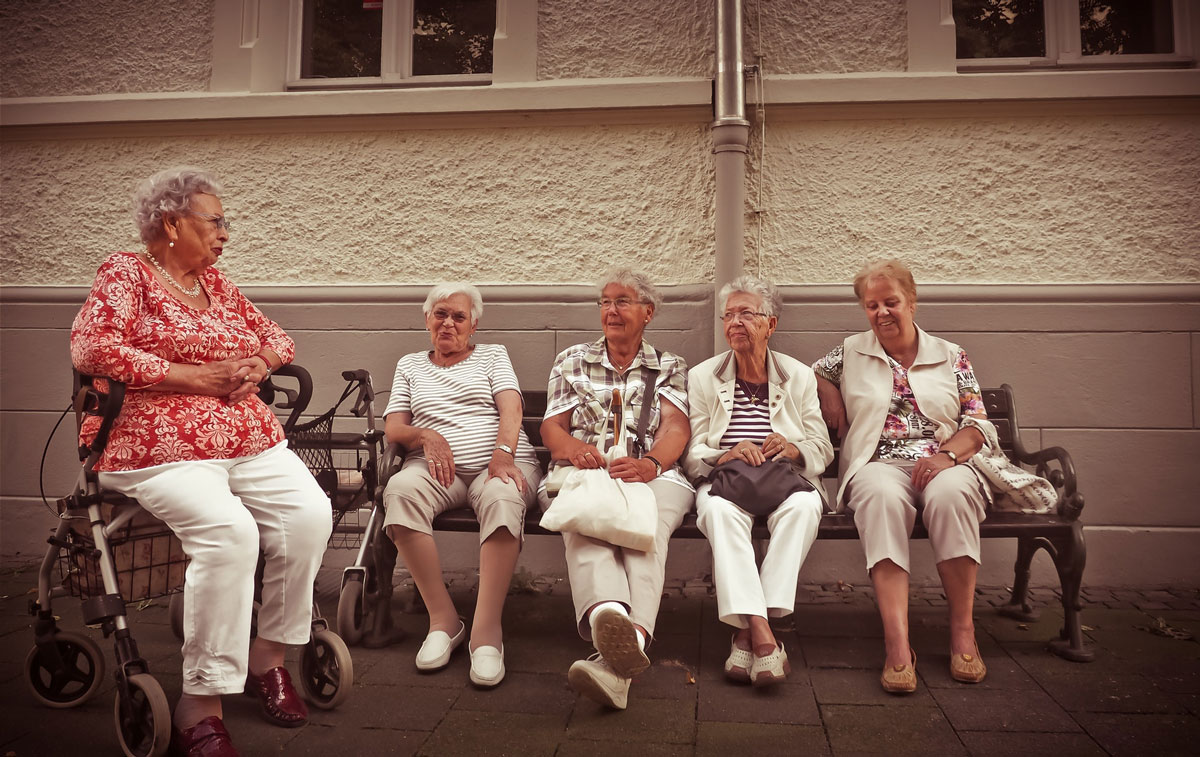Home Care Assistance is Changing the Way the World Ages. This is the latest installment of our “How To” series, where we lay out smart and easy-to-understand advice on navigating the aging process.
Social connections matter at any age, and that goes double for seniors adapting to life after a dementia diagnosis.
In Canada, 20% of us already identify as being lonely, and nearly one-third of us live alone. Add in the ways that aging – and dementia – transform our daily lives, and our senior population is at even greater risk of suffering the downsides of being alone.
The good news? There really are ways to help loved ones stay connected and engaged, even as you navigate dementia together. And the upside to doing so can be huge. Studies show that people with more social ties tend to live longer. Social relationships also help keep our stress levels in check, which can do wonders for someone starting to experience agitation and anxiety as a result of evolving dementia.
So, where do you start, and how can you help?
-
First thing’s first, talk to your doctor about setting realistic expectations. Every person is unique. Same goes for every dementia diagnosis. Your loved one may have a very different capacity for socializing compared to someone else. Touching base with your doctor before building out informal or formal opportunities for someone to engage in real and meaningful activities is important. Share your initial thinking with the doctor and get their go-ahead before ramping up any activities, especially if they’re physical in nature.
-
Consider your loved one’s interests, likes, and passions. Was your dad always in his woodshop, creating magic with his tools? Did your mom spend hours at the library, or volunteering at an after-school program? Finding links between what someone always loved to do, and adapting those activities to a fit-for-purpose alternative that’s suitable for their capabilities today, is a solid starting point. Someone who always loved art, but might not be capable of dreaming up new projects independently anymore, might have a lot to gain from a guided and supervised craft hour for seniors or a free-for-seniors museum tour. A reader who would once while away free time roaming a favourite book shop might benefit from a Sunday afternoon scrabble club where they can still participate while building connections with like-minded seniors in a safe environment. New activities are great for keeping the mind active, and anything in a group setting provides a built-in social network of people to chat with, or even just sit with, as the stage of a disease’s progress will allow.
-
Look for opportunities to socialize and exercise at the same time. Having someone to talk to once or twice a week can make a big difference in someone’s mental health. Combining talking with even light exercise, like walking, can amplify the benefits, feeding two birds with one stone. Everyone knows the mood boost we get from moving around during the day. Building the right kind of doctor-approved exercise into someone’s routine can be as simple as going for a walk together, and chatting along the way. The positivity spreads when you try a new route – keeping the brain active – or run into like-minded walkers (read: more people to chat with). Some communities actually offer walking clubs or chair-based exercise classes meant specifically for the aging population (which can also provide caregiver respite). If not, consider hitting up the local mall with your loved one before opening hours. The stimulation of a new environment, combined with your companionship, opportunities to interact with a cashier to buy a coffee, and window shopping all help someone feel more connected to the outside world, even as their internal world is changing.
-
Check out more formal programs meant specifically to keep your loved one engaged. More than ever, organizations are offering up ways to pair seniors with opportunities for companionship. What’s out there? In some cities, the local chapter of the Alzheimer’s Society of Canada is running partner programs that bring together a university student and a senior citizen navigating Alzheimer’s for weekly catch-ups. This type of cross-general friendship opens up entirely new conversations, combats loneliness, and keeps people feeling connected. You may be surprised how many options exist. From churches that offer bi-weekly coffee socials, to high schools that team up student volunteers with seniors’ residences for tea parties, any kind of meet-up that offers someone the chance to feel part of something, change scenery, and talk is a benefit.
Closing thoughts
Life changes as we age. Dementia can sometimes accelerate those changes. What do we know for sure? Even though things can change dramatically, there is a real upside to staying socially connected at any age and any stage of dementia. Being deliberate about it, and finding options that work specifically for your loved, can make all the difference. A dementia diagnosis shouldn’t have to signal the end of meaningful ways to interact and laugh – both of which are a nod to good health.
References:
Statistics Canada: Study – Living Alone in Canada
Mayo Clinic: Friendship: Enrich your life and improve your health
American Journal of Epidemiology: Social networks, host resistance, and mortality: a nine-year follow-up study of Alameda County residents
Acta Neuropathologica: One is the Deadliest Number: The Detrimental Effects of Social Isolation on Cerebrovascular Diseases and Cognition

